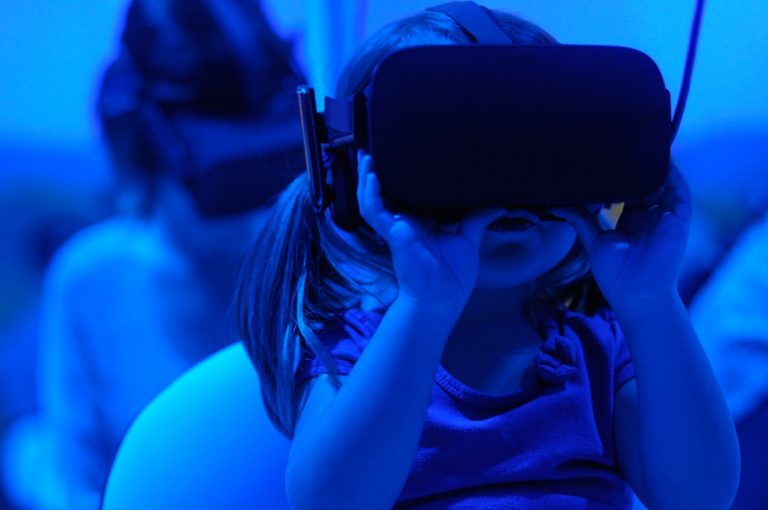In recent years, virtual reality (VR) has emerged as a transformative tool in various sectors, including human resources and recruitment. The ability to create immersive environments allows organizations to simulate real-world scenarios where candidates can demonstrate their skills and competencies. This technology not only enhances the candidate experience but also provides employers with a more accurate assessment of an applicant’s capabilities.
By placing candidates in lifelike situations, companies can observe how they react under pressure, interact with others, and make decisions in real-time. The rise of VR in roleplay scenarios is particularly significant in industries that require strong interpersonal skills, such as sales, customer service, and healthcare. For instance, a candidate applying for a sales position can be placed in a virtual store where they must engage with customers, handle objections, and close sales.
This immersive experience allows hiring managers to evaluate not just the candidate’s technical skills but also their emotional intelligence and adaptability. As organizations continue to embrace this technology, the potential for VR to revolutionize the hiring process becomes increasingly apparent. According to a recent article on HR Examiner, companies that leverage VR in their recruitment processes are likely to see improved candidate engagement and retention rates.
Key Takeaways
- Virtual reality is revolutionizing roleplay scenarios by providing a more immersive and realistic experience for participants.
- Artificial intelligence is being integrated into roleplay assessments to provide more personalized and accurate feedback to candidates.
- Gamification is transforming roleplay hiring by making the assessment process more engaging and interactive for candidates.
- Customized roleplay scenarios tailored to specific industries are becoming increasingly popular to assess candidates’ skills and competencies effectively.
- Emotional intelligence is playing a crucial role in roleplay assessments, as it helps evaluate candidates’ ability to understand and manage emotions in different scenarios.
Incorporating artificial intelligence in roleplay assessments
Artificial intelligence (AI) is another game-changing technology that is reshaping the landscape of roleplay assessments. By integrating AI into the recruitment process, organizations can streamline evaluations and gain deeper insights into candidate performance. AI algorithms can analyze a candidate’s responses during roleplay scenarios, assessing factors such as tone of voice, body language, and decision-making patterns.
This data-driven approach allows hiring managers to make more informed decisions based on objective metrics rather than relying solely on subjective impressions. Moreover, AI can help create personalized roleplay scenarios tailored to the specific needs of the organization. By analyzing job descriptions and required competencies, AI can generate realistic simulations that challenge candidates in relevant ways.
This customization not only enhances the assessment process but also ensures that candidates are evaluated on skills that are directly applicable to the role they are applying for. As highlighted by Talent Culture, the integration of AI in roleplay assessments can lead to more efficient hiring processes and better alignment between candidates and organizational needs.
The impact of gamification on roleplay hiring

Gamification has become a popular trend in recruitment, and its impact on roleplay hiring cannot be overstated. By incorporating game-like elements into the assessment process, organizations can create engaging and interactive experiences for candidates. This approach not only makes the evaluation process more enjoyable but also encourages candidates to perform at their best.
Gamified roleplay scenarios can include challenges, rewards, and competition, all of which contribute to a more dynamic assessment environment. The use of gamification in roleplay hiring also helps to reduce anxiety among candidates. Traditional interviews can be intimidating, leading to performance anxiety that may not accurately reflect a candidate’s true abilities.
In contrast, gamified assessments create a more relaxed atmosphere where candidates feel empowered to showcase their skills without the pressure of a formal interview setting. As noted by HR Zone, organizations that adopt gamification strategies often report higher levels of candidate satisfaction and engagement throughout the hiring process.
Customized roleplay scenarios for different industries
| Industry | Customized Roleplay Scenarios |
|---|---|
| Healthcare | Simulated patient interactions for medical professionals |
| Retail | Customer service roleplay for retail employees |
| Finance | Financial advising scenarios for banking professionals |
| Technology | Technical support roleplay for IT professionals |
One of the key advantages of roleplay assessments is the ability to customize scenarios for different industries and job functions. Each sector has its unique challenges and requirements, making it essential for organizations to tailor their assessments accordingly. For example, a healthcare provider may design roleplay scenarios that simulate patient interactions, while a tech company might focus on troubleshooting customer issues related to software products.
By aligning roleplay scenarios with industry-specific demands, organizations can better evaluate candidates’ readiness for the roles they are applying for. Customization also extends to the level of complexity within roleplay scenarios. Entry-level positions may require simpler simulations that assess basic skills, while senior roles may involve more intricate scenarios that test strategic thinking and leadership abilities.
This tailored approach not only enhances the relevance of the assessment but also provides candidates with a clearer understanding of what is expected in their potential roles. As highlighted by Workology, customized roleplay scenarios can lead to more accurate evaluations and ultimately better hiring decisions.
The role of emotional intelligence in roleplay assessments
Emotional intelligence (EI) plays a crucial role in many job functions, particularly those that involve interpersonal interactions. Roleplay assessments provide an excellent opportunity to evaluate candidates’ emotional intelligence by observing how they navigate complex social situations. Candidates who demonstrate high levels of EI are often better equipped to handle conflicts, empathize with others, and build strong relationships—all essential qualities in today’s workplace.
During roleplay scenarios, assessors can look for indicators of emotional intelligence such as active listening, adaptability, and conflict resolution skills. For instance, a candidate who effectively manages a difficult customer interaction by remaining calm and empathetic demonstrates strong emotional intelligence.
By prioritizing EI in roleplay assessments, organizations can identify candidates who not only possess the necessary technical skills but also have the interpersonal abilities required for success in their roles.
According to HR Trend Institute, integrating emotional intelligence into hiring practices can lead to improved team dynamics and overall organizational performance.
Ethical considerations in roleplay hiring

Fairness and Unbiased Assessments
When implementing roleplay assessments, organizations must ensure that their assessments are fair and unbiased, providing equal opportunities for all candidates regardless of their background or personal characteristics. This includes being mindful of how scenarios are designed and ensuring that they do not inadvertently favor certain groups over others.
Transparency in Communication
Transparency is key when it comes to communicating the purpose and expectations of roleplay assessments to candidates. Organizations should provide clear guidelines on what candidates can expect during the assessment process and how their performance will be evaluated. This transparency fosters trust between candidates and employers and helps create a positive candidate experience.
The Importance of Ethical Considerations
Addressing ethical considerations in recruitment practices is essential for building a strong employer brand and attracting top talent. By prioritizing fairness, transparency, and equal opportunities, organizations can establish a positive reputation and attract the best candidates for the role.
The future of remote roleplay assessments
The COVID-19 pandemic has accelerated the shift towards remote work and virtual hiring processes, making remote roleplay assessments increasingly relevant. As organizations adapt to this new landscape, they must find innovative ways to conduct effective assessments without compromising quality or engagement.
Remote roleplay assessments can leverage technology such as video conferencing tools and virtual collaboration platforms to create interactive experiences for candidates.
The future of remote roleplay assessments will likely involve a combination of VR technology, AI-driven analytics, and gamified elements to create engaging and effective evaluation processes. As organizations continue to embrace remote work, the ability to conduct thorough assessments from anywhere in the world will become a critical component of successful hiring strategies. According to HRE Executive, companies that invest in remote assessment technologies will be better positioned to attract top talent in an increasingly competitive job market.
Measuring success and effectiveness of roleplay assessments
To ensure that roleplay assessments are delivering value, organizations must establish metrics for measuring their success and effectiveness. Key performance indicators (KPIs) may include candidate satisfaction scores, time-to-hire metrics, and post-hire performance evaluations. By analyzing these metrics, organizations can gain insights into how well their roleplay assessments are functioning and identify areas for improvement.
Additionally, gathering feedback from both candidates and assessors can provide valuable information on the overall experience of the assessment process. This feedback can help organizations refine their scenarios and ensure that they remain relevant and engaging for future candidates. As highlighted by Smart Recruiters, continuous improvement is essential for maintaining effective hiring practices that align with organizational goals.
In conclusion, the integration of virtual reality, artificial intelligence, gamification, customization, emotional intelligence considerations, ethical practices, remote capabilities, and effective measurement strategies are all critical components shaping the future of roleplay assessments in hiring processes. As organizations continue to innovate in this space, they will be better equipped to identify top talent while creating engaging experiences for candidates that reflect the evolving nature of work today.
When considering the future of roleplays in the hiring process, it is important to also explore how innovative AI recruitment tools can enhance efficiency. A related article on Unlocking Efficiency: Innovative AI Recruitment Tools for HR Specialists delves into how artificial intelligence can streamline the recruitment process and improve the quality of hire. By incorporating AI technology into roleplays, companies can better assess candidates’ skills and fit for the role, ultimately leading to more successful hires.
FAQs
What are roleplays in the hiring process?
Roleplays in the hiring process are simulations of real-life work scenarios that candidates are asked to perform. They are used to assess a candidate’s skills, problem-solving abilities, and how they would handle specific situations related to the job they are applying for.
Why are roleplays used in the hiring process?
Roleplays are used in the hiring process to provide a more accurate assessment of a candidate’s abilities and potential fit for the role. They allow employers to see how candidates perform in realistic work situations and how they handle challenges that may arise on the job.
What is the future of roleplays in hiring?
The future of roleplays in hiring is likely to involve more use of technology, such as virtual reality simulations, to create even more realistic scenarios for candidates to navigate. Additionally, roleplays may be used to assess a wider range of skills, including emotional intelligence and adaptability.
How can candidates prepare for roleplays in the hiring process?
Candidates can prepare for roleplays in the hiring process by researching the company and the role they are applying for, practicing common scenarios related to the job, and seeking feedback from mentors or peers. It’s also important for candidates to stay calm and focused during the roleplay exercise.
-

A passionate advocate for the future of HR innovation. With expertise in leveraging AI to revolutionize recruitment processes, Carlos has a clear vision: empower HR teams while creating meaningful candidate experiences.
View all posts



